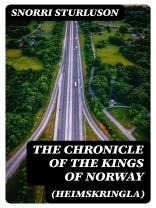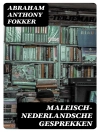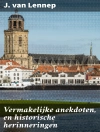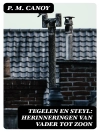The Chronicle of the Kings of Norway, known as Heimskringla, is a seminal work by Snorri Sturluson that intricately weaves together history, legend, and biography, chronicling the reigns of the Norwegian kings from the mythic prehistory to the 12th century. Sturluson employs a rich narrative style, characterized by a blend of prose and poetry, which reflects the oral traditions of the Norse people while embedding a sense of moral lesson and political insight. This text serves not only as a historical record but also as a reflection of the sociopolitical landscape of medieval Scandinavia, illustrating the interplay of power, fate, and honor that defined the era. Snorri Sturluson was a versatile Icelandic historian, poet, and politician, born into a notable family in 1179. His deep engagement with Norse traditions and his role in the political intricacies of Iceland and Norway positioned him as a custodian of Scandinavian culture. His scholarly pursuits were fueled by a desire to preserve the rich tapestry of Viking heritage, prompting him to write Heimskringla, which showcases both his literary prowess and his commitment to Norse identity. Heimskringla is a crucial read for anyone interested in the medieval Nordic world, as it intricately connects stories of kings and gods, delivering not only historical insights but also profound reflections on human nature and governance. For historians, scholars, and lovers of epic tales alike, this work stands as an indispensable resource that beckons readers to explore the complexities of Norse mythology and history.
Sobre o autor
Snorri Sturluson (1179 – 23 September 1241) was an Icelandic historian, poet, and politician, known primarily for his significant contributions to Icelandic literature and the preservation of Norse mythology and Scandinavian history. Sturluson’s legacy is closely tied to his work as the author of the ‘Heimskringla’ or ‘The Chronicle of the Kings of Norway’, a monumental compilation of the sagas narrating the history of the Norwegian kings from the legendary times until around 1177. Displaying a unique blend of historical fact and oral tradition, the ‘Heimskringla’ is celebrated for its detailed characterizations and vivid narratives, illuminating the culture and politics of medieval Scandinavia. His narrative style is marked by a clear and direct prose, which, while rooted in the oral storytelling tradition, marked a significant development towards a more historical and secular writing that influenced the historiography of his time and beyond. Sturluson’s other notable works include ‘Snorra Edda’ or ‘Prose Edda’, a manual of Old Norse poetics and mythology, which has served as a vital source for understanding Norse lore, and the ‘Ægisdóra’, a collection of mythological and heroic poetry. As a political figure, he was deeply embroiled in the complex and often violent power struggles that characterized 13th-century Iceland, which eventually led to his assassination. His works, however, have transcended his own turbulent lifetime, securing Snorri Sturluson’s place as a cornerstone figure in medieval Norse literature and historiography.












